Node.js is used to build fast, highly scalable network applications based on an event-driven non-blocking input/output model, and single-threaded asynchronous programming.
A web application framework is a combination of libraries, helpers, and tools that provide a way to effortlessly build and run web applications. A web framework lays out a foundation for building a website/app.
The most important aspects of a web framework are – its architecture and features (such as support for customization, flexibility, extensibility, security, compatibility with other libraries, etc..).
In this article, we will share the 18 best Node.js frameworks for the developer. Note that this list is not organized in any particular order.
Table of Contents
1. Express.JS
Express is a popular, fast, minimal, and flexible Model-View-Controller (MVC) Node.js framework that offers a powerful collection of features for web and mobile application development. It is more or less the de-facto API for writing web applications on top of Node.js.
It’s a set of routing libraries that provides a thin layer of fundamental web application features that add to the lovely existing Node.js features. It focuses on high performance and supports robust routing, and HTTP helpers (redirection, caching, etc).
It comes with a view system supporting 14+ template engines, content negotiation, and an executable for generating applications quickly.
In addition, Express comes with a multitude of easy-to-use HTTP utility methods, functions, and middleware, thus enabling developers to easily and quickly write robust APIs. Several popular Node.js frameworks are built on Express (you will discover some of them as you continue reading).
2. Socket.io
Socket.io is a fast and reliable full-stack framework for building real-time applications. It is designed for real-time bidirectional event-based communication.
It comes with support for auto-reconnection, disconnection detection, binary, multiplexing, and rooms. It has a simple and convenient API and works on every platform, browser or device(focusing equally on reliability and speed).
3. Meteor.JS
Third on the list is Meteor.js, an ultra-simple full-stack Node.js framework for building modern web and mobile applications. It is compatible with the web, iOS, Android, or desktop.
It integrates key collections of technologies for building connected-client reactive applications, a build tool, and a curated set of packages from the Node.js and general JavaScript community.
4. Koa.JS
Koa.js is a new web framework built by the developers behind Express and uses ES2017 async functions. It’s intended to be a smaller, more expressive, and more robust foundation for developing web applications and APIs. It employs promises and async functions to rid apps of callback hell and simplify error handling.
To understand the difference between Koa.js and Express.js, read this document: koa-vs-express.md.
5. Sails.js
Sailsjs is a real-time MVC web development framework for Node.js built on Express. Its MVC architecture resembles that of frameworks such as Ruby on Rails. However, it’s different in that it supports the more modern, data-driven style of web app and API development.
It supports auto-generated REST APIs, easy WebSocket integration, and is compatible with any front-end: Angular, React, iOS, Android, and Windows Phone, as well as custom hardware.
It has features that support for requirements of modern apps. Sails are especially suitable for developing real-time features like chat.
6. MEAN
MEAN (in full Mongo, Express, Angular(6), and Node) is a collection of open-source technologies that together, provide an end-to-end framework for building dynamic web applications from the ground up.
It aims to provide a simple and enjoyable starting point for writing cloud-native full-stack JavaScript applications, starting from the top to the bottom. It is another Node.js framework built on Express.
7. Nest.JS
Nest.js is a flexible, versatile, and progressive Node.js REST API framework for building efficient, reliable, and scalable server-side applications. It uses modern JavaScript and it’s built with TypeScript. It combines elements of OOP (Object Oriented Programming), FP (Functional Programming), and FRP (Functional Reactive Programming).
It’s an out-of-the-box application architecture packaged into a complete development kit for writing enterprise-level applications. Internally, it employs Express while providing compatibility with a wide range of other libraries.
8. Loopback.io
LoopBack is a highly-extensible Node.js framework that enables you to create dynamic end-to-end REST APIs with little or no coding. It is designed to enable developers to easily set up models and create REST APIs in a matter of minutes.
It supports easy authentication and authorization setup. It also comes with model relation support, various backend data stores, Ad-hoc queries, and add-on components (third-party login and storage service).
9. Keystone.JS
KeystoneJS is an open-source, lightweight, flexible, and extensible Nodejs full-stack framework built on Express and MongoDB. It is designed for building database-driven websites, applications, and APIs.
It supports dynamic routes, form processing, database building blocks (IDs, Strings, Booleans, Dates, and Numbers ), and session management. It ships with a beautiful, customizable Admin UI for easily managing your data.
With Keystone, everything is simple; you choose and use the features that suit your needs, and replace the ones that don’t.
10. Feathers.JS
Feathers.js is a real-time, minimal, and micro-service REST API framework for writing modern applications. It is an assortment of tools and an architecture designed for easily writing scalable REST APIs and real-time web applications from scratch. It is also built on Express.
It allows for quickly building application prototypes in minutes and production-ready real-time backends in days. It easily integrates with any client-side framework, whether it be Angular, React, or VueJS.
Furthermore, it supports flexible optional plugins for implementing authentication and authorization permissions in your apps. Above all, feathers enable you to write elegant, flexible code.
11. Hapi.JS
Hapi.js is a simple yet rich, stable, and reliable MVC framework for building applications and services. It is intended for writing reusable application logic as opposed to building infrastructure.
It is configuration-centric and offers features such as input validation, caching, authentication, and other essential facilities.
12. Strapi.io
Strapi is a fast, robust, and feature-rich MVC Node.js framework for developing efficient and secure APIs for websites/apps or mobile applications. Strapi is secure by default and its plugins oriented (a set of default plugins is provided in every new project) and front-end agnostic.
It ships with an embedded elegant, entirely customizable, and fully extensible admin panel with headless CMS capabilities for keeping control of your data.
13. Restify.JS
Restify is a Nodejs REST API framework that utilizes connect-style middleware. Under the hood, it heavily borrows from Express. It is optimized (especially for introspection and performance) for building semantically correct RESTful web services ready for production use at scale.
Importantly, restify is being used to power a number of huge web services out there, by companies such as Netflix.
14. Adonis.JS
Adonisjs is another popular Node.js web framework that is simple and stable with an elegant syntax. It is an MVC framework that provides a stable ecosystem to write stable and scalable server-side web applications from scratch. Adonisjs is modular in design; it consists of multiple service providers, the building blocks of AdonisJs applications.
A consistent and expressive API allows for building full-stack web applications or micro API servers. It is designed to favor developer joy and there is a well-documented blog engine to learn the basics of AdonisJs.
Other well-known Nodejs frameworks include but are not limited to SocketCluster.io (full stack), Nodal (MVC), ThinkJS (MVC), SocketStreamJS (full stack), MEAN.JS (full stack), Total.js (MVC), DerbyJS (full-stack), and Meatier (MVC).
15. Total.js
Total.js is yet another amazing and full-featured node.js development framework, which is superb fast, performance-oriented, stable, least maintenance cost in long run and it supports various database systems like Mongo, MySQL, Ember, PostgreSQL, etc.
It is a useful framework for developers who are really looking for an impressive CMS (Content Management System) with NoSQL embedded database, which makes the development project more profitable and skillful.
Unlike the other framework, Total.js offers Extraordinary value to the users. It also includes features like SMTP, image processing toll, etc. In short, with Total.js you can create real-time responsive applications.
16. RingoJS
RingoJS is an open-source JavaScript platform created on the JVM (Java virtual machine) and optimized for server-side applications and it is based on the Mozilla Rhino JavaScript engine. It comes with a vast set of built-in modules and follows the CommonJS standard.
17. VulcanJS
VulcanJS is a new open-source full-stack framework that offers a set of tools for quickly building React, Redux, Apollo, and GraphQL-based web applications by taking care of usual tasks like handling forms, data loading, groups & permissions, automatically generating forms, handling email notifications, and much more.
18. FoalTS
FoalTS is a next-generation web-based framework for creating Node.JS applications and is written in Javascript. The construction and factor are designed to keep the code elegant and simple as much as possible. Instead of wasting time in building everything from scratch, FoalTS allows you to focus on business more productively and efficiently.
That’s It! In this article, we’ve covered the 14 best Nodejs web frameworks for developers. For each framework covered, we mentioned its underlying architecture and highlighted a number of its key features.
We would like to hear from you, share your thoughts, or ask questions via the feedback section below. You can also tell us about any other trending frameworks that you feel should appear in this article.


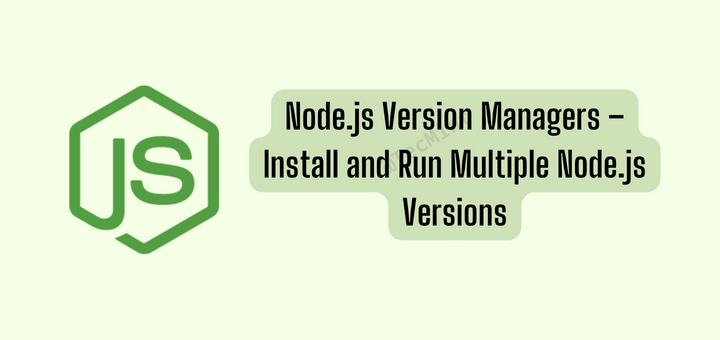
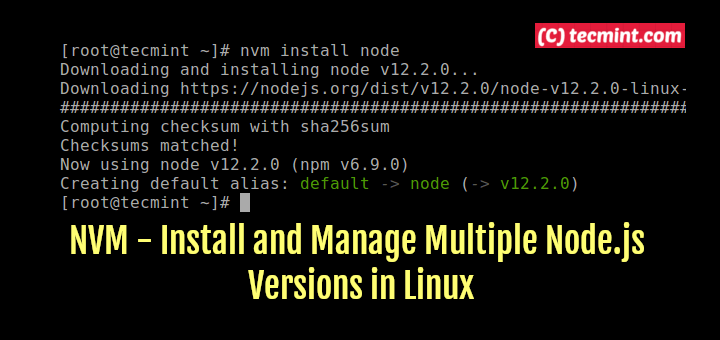
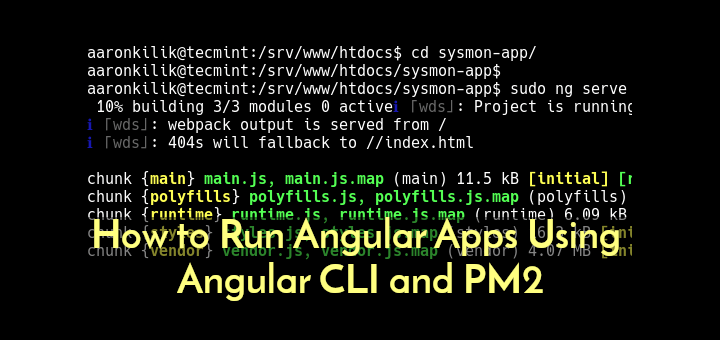
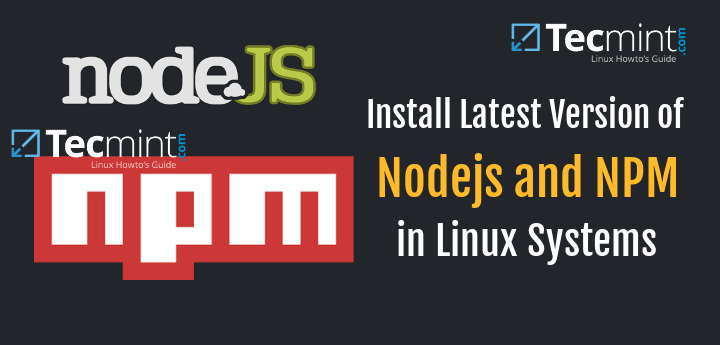
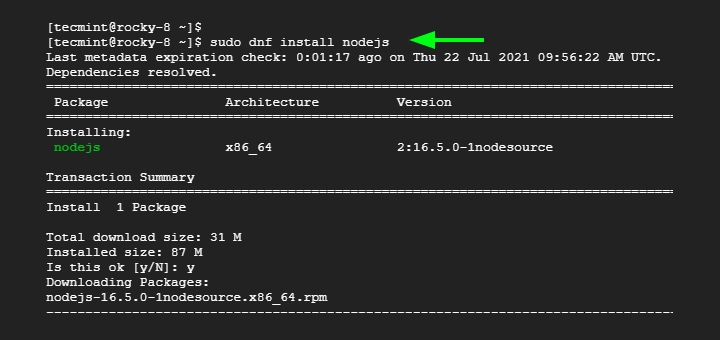
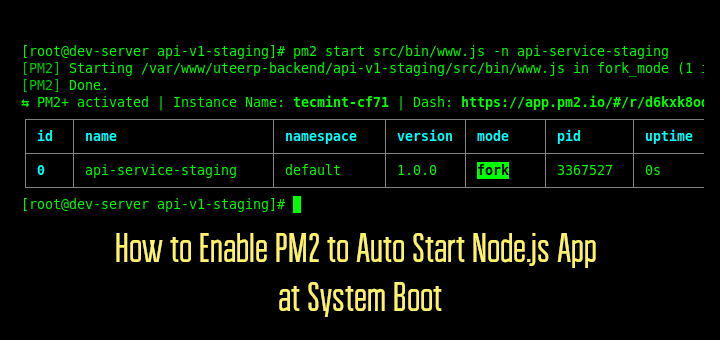
I’d like to mention a useful NodeJS framework for working with data on the server-side, it’s called DeriveJS – it’s an Object Data Mapper framework for MongoDB that’s based around Javascript proxies: it lets you define data models, and then create new objects and manipulate them the same way as you do with native JS objects while taking care of all data-persistence transparently in the background for you (so `let dataObject = new DataObject(‘some index value’)` automatically saves a new DataObject into a Mongo collection (in addition to saving the instance to memory as usual), and dataObject.someprop = newvalue, automatically updates `someprop` on the DB.
It also uses bulk operations for all database operations – so the performance is pretty good as it avoids unnecessary and redundant calls and requests to the database process/server.
@Yuval
Thanks for sharing, we will check it out.
Many thanks for this article and I will add one more called total.js. A fast-growing community with an amazing framework.HMVC Pattern, mostly compared with .NET and PHP Laravel. Have a look ;-)
@Mike
Total.js has now been added to the list, many thanks for sharing.
Dominion – one more new minimalistic Node.js framework for RESTful APis.
@Jensen
Many thanks for sharing this.
VulcanJS – A full-stack framework to quickly build apps with React, GraphQL & Meteor.
Disclaimer: I’m the maintainer of the framework.
There is also FoalTS, a Web framework for building server-side Node.js application. It is written in TypeScript, offer many built-in dev tools and has a large set of integrated components required in common situations.
Here are some of its features:
Feel free to reach me out on Twitter / Github if you have any questions or suggestions!
@Loïc
Many thanks for sharing, we are grateful.
I will add one more to the list called RingoJS – a JavaScript platform built on the JVM and optimized for server-side applications.
@gc
Many thanks for sharing this, we are grateful for the addition.